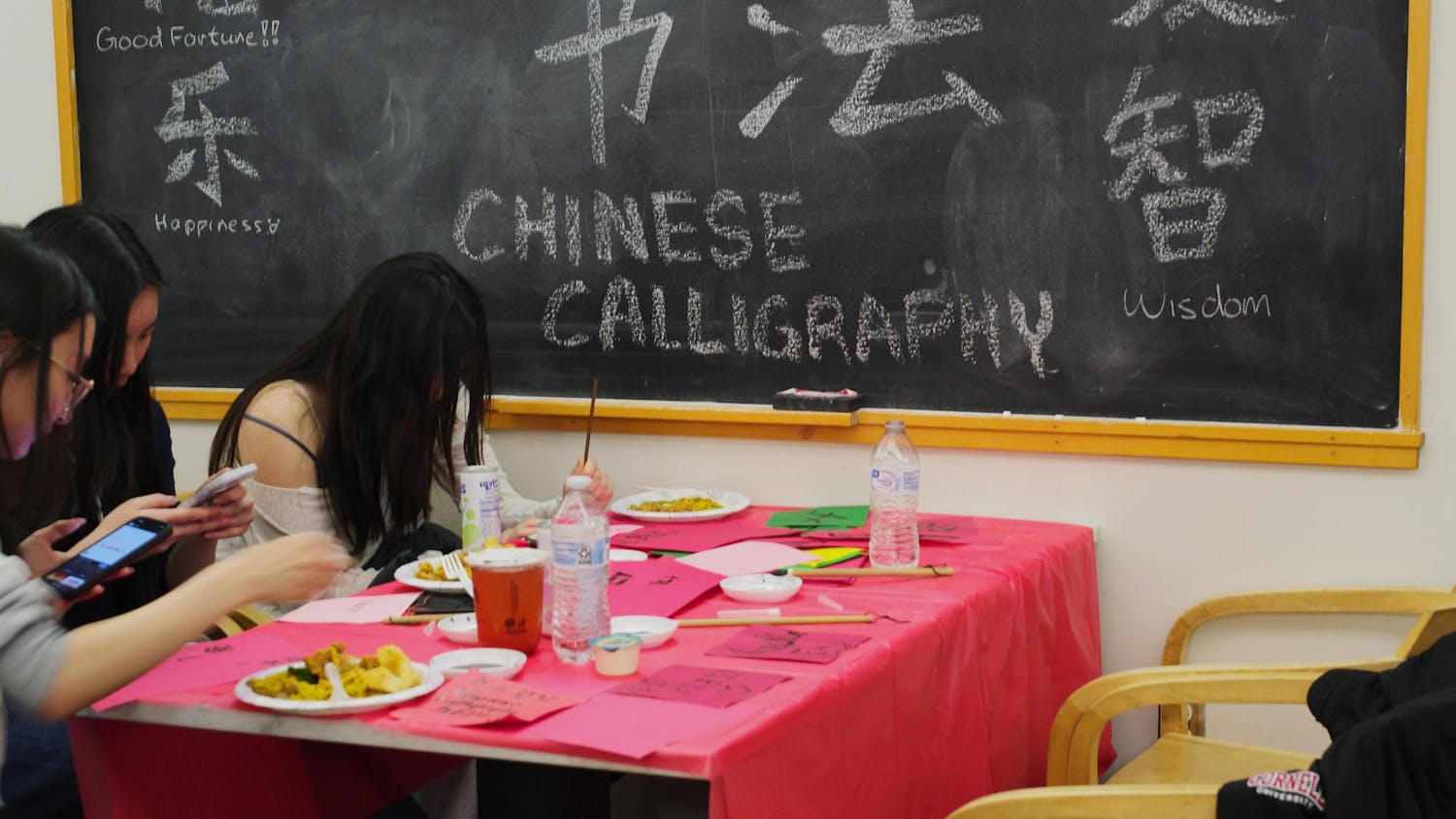“Research matters,” “Research improves lives” and “Research feeds the world.” These messages have been featured across Cornell’s main webpages and social media accounts, articles and posts highlighting the real-world impacts of the University’s research on pediatric heart assist devices, livestock disease, cryptocurrencies and more.
In the wake of federal research funding cuts and over 120 stop-work orders sent to Cornell by the federal government, the University has dubbed the new media campaign Research Matters.
The Research Matters campaign “aims to illustrate and communicate the value of Cornell research and its real-world impact on national security, the economy, food and agriculture, health care, and technology,” wrote Provost Kavita Bala in a statement sent to The Sun.
Bala explained that the new campaign uses “social media storytelling about how Cornell research improves lives” and highlights some of the “140-plus impacted projects, which include research intended to fight disease, protect our military and food supply, develop AI and technology, and advance American competitiveness."
The campaign includes social media posts featured on LinkedIn, Instagram, X and Facebook, as well as through Cornell Chronicle articles and displays on several Cornell webpages. The banners were altered beginning April 14, based on The Sun’s analysis of previous versions of webpages.
Peer institutions including Harvard, Northwestern and Johns Hopkins have similarly launched research-focused media campaigns in response to the Trump administration’s cuts to academic research.
Prof. James Antaki, biomedical engineering, said that Bala’s office “hand-selected” his work on PediaFlow, a pediatric heart assist device, to feature in the campaign. The project saw the pulling of a $6.5 million Department of Defense grant, which was supposed to take effect March 31. A video interview highlighting the real-world benefits of the device for infants with heart conditions was published by the Cornell Chronicle on May 6 and promoted on LinkedIn and Instagram.
According to Antaki, the interview generated “sympathetic” media attention from NBC News and The New York Times. Prof. Scott McArt, entomology, said he similarly saw increased publicity following Cornell’s media efforts. He was contacted by NPR, the Washington Post, CNN and The New York Times after his research project on honeybee die-offs — led by the Department of Agriculture and unable to source federal funding since beginning in February — was featured in the Cornell Chronicle.
McArt hopes the campaign helps the public “look under the hood” at academic research.
“I think a lot of the public doesn’t actually realize where their taxpayer money goes,” McArt said.
Prof. Ari Juels, computer science, has his research on blockchain currencies featured on a webpage called “International Research Matters for the United States,” which was added to the Einaudi Center for International Studies website on May 12, according to an analysis from The Sun. Juels believes that the “ivory tower view of academia” is a misconception stemming from universities’ failing to advertise the global impacts of research to the broader public.
Juels hopes for Research Matters to “rebuild trust” in academic research, not just among policymakers in the wake of current research stop-work orders, but among the general public and private industry — another source of potential research partnerships — in the long term. Along with colleagues, Juels is producing an external opinion piece highlighting academia’s contribution of “foundational ideas and concepts” to the blockchain industry, and the “clear economic impact” research has driven by generating multi-billion dollar companies.
Prof. Elad Tako, food science, says bringing awareness and a return of funding through Research Matters is also crucial for “teaching and training the next generation of scientists.” Recruitment of student researchers for the upcoming fall semester is “very limited” due to the work stoppages, he explained.
Although several researchers told The Sun they sourced private savings and donors to continue their projects, they underscored the dependence of Cornell’s research on federal funding.
“Private industry is not going to fund these high-risk, high-reward ventures,” Antaki said.
“What if that private donor didn’t exist?” McArt said, referring to a private beekeeper who reimbursed the $80,000 worth of honeybee disease analyses Cornell’s Dyce Lab for Honey Bee Studies — for which he is program director — conducted in the absence of federal funding.
Looking forward, the researchers said they believe that Research Matters is unlikely to directly impact this year’s federal budget cuts. However, Antaki hopes that making research accessible to the general public can generate lasting support for projects at Cornell and their “worthwhile benefit to society.” He warned against the “flash in the pan” reaction to his featured interview, with initial attention on LinkedIn and Instagram tapering off. “Hopefully the campaign is able to keep up momentum,” Antaki said.
Juels reaffirmed the importance of research to the United States.
“The nexus of academic and industry research has been one of the most powerful forces for innovation in this country since the Second World War,” Juels said.
Iris Liang is a member of the class of 2028 in the College of Arts and Sciences. She is a Senior Writer and can be reached her at iliang@cornellsun.com.











